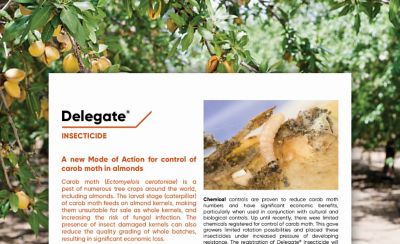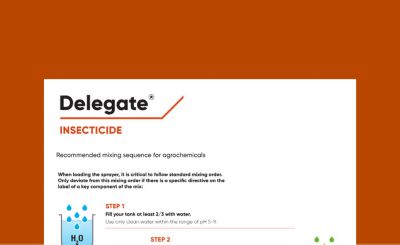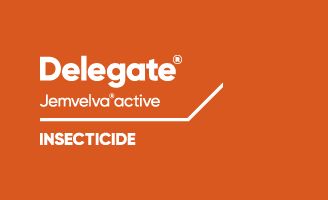Corteva Agriscience helping Citrus Growers adapt to change
Charles Darwin was famously quoted as saying “It is not the strongest of the species that survives, nor the most intelligent; it is the one most adaptable to change."
Charles Darwin was famously quoted as saying “It is not the strongest of the species that survives, nor the most intelligent; it is the one most adaptable to change."
The Citrus industry has gone through significant change over the last few years, the phasing out of chlorpyrifos as a pest control option is no exception. In 2018, regulators in the USA expressed concern that residue levels of chlorpyrifos on treated citrus fruit breached maximum residue levels, this in turn led to reviews of the chemical in Australia with major packing and export companies such as the Mildura Fruit Company initiating the removal of chlorpyrifos from their approved pesticide programs.
We spoke to Danny Thornton, regional manager with E.E. Muir & Sons who told us “when you look at an industry such as citrus, most of our produce is being exported. It is therefore incumbent upon growers to be mindful of the chemicals they are using and how and when they are used to ensure that there are no residue issues when fruit is exported around the world.”
“A few years back, growers would monitor pest numbers and as they reached economic thresholds the orchard would be sprayed with a broad-spectrum insecticide such as chlorpyrifos or methomyl. This would wipe-out pretty much all of the insect population, including any beneficial predators. These days, growers are looking for softer, more selective pest control options and are implementing Integrated Pest Management (IPM) strategies”.
Danny went on to say that crop protection companies such as Corteva Agriscience have an important role to play in developing new, sustainable products that give growers confidence and control, that are IPM compatible and can be used in rotation with other chemistry to avoid potential resistance issues.
One such product is Delegate® insecticide containing Jemvelva™ active. Delegate provides excellent control of Citrus leafminer and Lightbrown apple moth (LBAM). Jemvelva active is derived from a naturally occurring organism, and thus presents low risk to the environment, orchard workers and beneficial insects such as lacewings and ladybirds. Another important feature of Delegate is its translaminar activity, allowing it to move through the leaf surface to control leaf miner larvae within the leaf.
Recent trials conducted in the Sunraysia using Delegate insecticide for the control of Kelly’s Citrus Thrip (KCT) have been successful, Corteva hopes this will lead to an expanded label claim to include KCT, leaf miner and LBAM. Danny went on to say “We are seeing good results here which supports the data from New Zealand where the product is already being used successfully for this particular pest” he said.
From a resistance standpoint, Delegate is a group 5 insecticide with a unique mode of action which makes it an ideal rotation option, helping to prolong the active life of all chemical control products .
Danny concluded by saying that the citrus industry is in a strong position to adapt to change and with continued investment from companies like Corteva Agriscience, the future is looking bright.

Cultural, biological and chemical control of Carob Moth in Almonds.
View now

For the control of various pests in grapes and Pome and Stone fruit as specified in the Directions for Use.
Product details